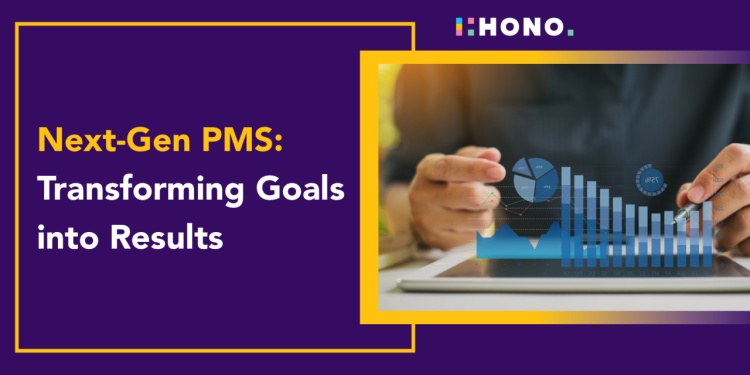A Step-by-Step Guide for HR Leaders to Fix Performance Management

For decades, the annual performance review has been the cornerstone of most organizations' performance management processes. But times have changed. The digital age demands a more agile, collaborative, and feedback-driven approach.
The traditional review, with its backward-looking focus and often inconsistent outcomes, is failing both employees and organizations. Research paints a bleak picture:
- 95% of managers are dissatisfied with their company's review process.
- 77% of HR executives believe reviews don't accurately reflect employee contributions.
- Only 26% of employees believe feedback helps them improve.
- 22% of millennial employees have called in sick to avoid reviews.
The problem isn't that performance management is unnecessary. It's that the traditional methods are broken. 
Why Traditional Performance Management Falls Short
In the digital age, where collaboration and rapid adaptation are paramount, the annual review simply doesn't cut it. Here's why:
- Backward Focus: Reviews dwell on past performance, offering little guidance for future improvement.
- Infrequent Feedback: Employees receive feedback only once a year, hindering their ability to course-correct and grow.
- Inconsistent Outcomes: Reviews are often subjective and don't always correlate with compensation or promotion decisions.
- Lack of Collaboration: The process is typically top-down, ignoring the value of peer feedback and teamwork.
Let's explore six transformative approaches to performance management that align with modern business practices and employee expectations.
- Encourage Continuous Manager-Employee Feedback
Traditional annual reviews often fail to capture the full scope of an employee's contributions and development needs. Instead, embracing ongoing conversations throughout the year fosters a continuous feedback loop. Educating both managers and employees on the frequency and types of feedback can empower them to take ownership of their development, making feedback a tool for success rather than a dreaded annual event.
- Promote Team-Oriented Goal Setting
Performance management should transcend individual achievements to embrace team dynamics. By encouraging team goal-setting, organizations can ensure that personal objectives are aligned with team outcomes, enhancing overall performance. Additionally, creating opportunities for employees to give feedback to their managers democratizes the feedback process, enhancing transparency and mutual respect.
- Develop a Forward-Looking Performance Framework
Instead of solely assessing past performance, a forward-looking approach focuses on future potential and development readiness. This involves understanding an employee's capacity and willingness to grow, and aligning support accordingly. It's about preparing employees for future challenges and ensuring they have the skills needed for tomorrow, not just reviewing what they've done yesterday.
- Shift Managerial Focus to Future Skills and Development
Managers should not only reflect on past achievements but also guide employees on acquiring future skills. This approach increases transparency about necessary competencies within the team and encourages continuous learning and development, critical in today’s fast-paced work environments.
- Integrate Peer Feedback for Comprehensive Assessments
Peer feedback is invaluable for providing a well-rounded view of an employee's performance. Managers should be trained to gather input from those who work closely with the employee, rather than restricting feedback to traditional hierarchies. This method helps in holding employees accountable and provides a diverse perspective on their performance and behavior.
- Foster an Environment Rich in Feedback
Creating a culture that routinely acknowledges and encourages peer contributions can significantly enhance morale and productivity. Simplifying the feedback process and regularly prompting managers to recognize good work ensures that positive reinforcement becomes a part of the organizational fabric. 
HONO's Solution: A Performance Management Platform for the Future of Work
HONOs performance management module is designed to address the shortcomings of traditional reviews and empower your organization to embrace a more modern, effective approach. Our platform offers:
- Continuous Feedback Tools: Facilitate regular check-ins, goal tracking, and 360-degree feedback.
- Development-Focused Features: Help identify skill gaps and create personalized development plans.
- Collaboration & Transparency: Encourage team collaboration and knowledge sharing.
- Data-Driven Insights: Provide actionable analytics to identify trends and improve performance.
The future of performance management is here. It's time to ditch the outdated annual review and embrace a continuous, collaborative, and development-focused approach. The transformation of performance management from a once-a-year event to a continuous, dynamic process is crucial for meeting the modern demands of the workplace. By implementing these six strategies, organizations can move towards a more adaptive, employee-centric model that not only measures performance but actively contributes to employee growth and organizational success.
Adopting a new performance management system is not just about changing a process—it's about changing the organizational culture to better meet the needs of its workforce and pave the way for future success. Interested in learning how our HR software can streamline your performance management processes? Contact us today to see how we can help you implement these strategies effectively within your organization.

Author:
HONO Desk
SUBSCRIBE NEWSLETTER
For HR innovation updates
Download free HR Case Studies





